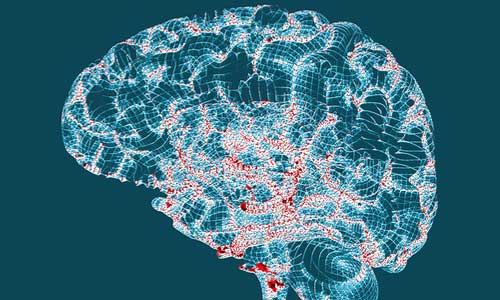18,000 French people live with Huntington’s disease, which causes neuron degeneration. French researchers are developing an innovative treatment to protect them and slow the progression of this rare neurodegenerative pathology.
Huntington’s disease, in three words? Neurodegenerative, rare and hereditary. Concretely, it leads to the degeneration of neurons involved in motor, cognitive and psychiatric functions. While current treatments are symptomatic and relieve certain disorders, they do not change the course of the disease. Researchers from Inserm, the University of Grenoble Alpes and the CHU Grenoble Alpes intend to remedy this by offering a neuroprotective treatment, that is to say one which protects the neurons. A new innovative therapeutic avenue published in the journal scientist Science Advances.
Huntington’s disease, quèsaco?
Usually beginning between the ages of 30 and 50, Huntington’s disease manifests with cognitive, psychiatric and uncontrolled movement disorders that can worsen over time and lead to the death of patients approximately twenty years later. His origin ? An abnormality in the gene encoding the huntingtin protein, which interacts and regulates the activity of at least 400 other proteins involved in different cellular functions, including the transport of molecules. This anomaly causes, in particular, a reduction in the transport of a very important molecule, called BDNF, located in the brain, between the cortex and the striatum, two regions involved, among other things, in the control of mood and movements. His role ? Promote the survival of neurons and ensure the connections between them. This decrease therefore causes the death of neurons in these brain regions.
Preclinical evaluation in progress
The researchers thus sought to restore this circulation in order to protect the brain from neuronal death. They then set their sights on the ML348 molecule, which made it possible to regulate the transport of BDNF vesicles. This therapeutic molecule tested in mice presents, according to the researchers, results ” promising »Such as the reduction of motor and psychological behavioral disorders. Building on this success, they are now moving on to the second stage: preclinical trials intended to evaluate the behavior of the molecule in the body, its safety in use, or even to identify effective doses on cell and animal models. Final goal? Develop a drug for the 18,000 French people concerned that would reduce the progression of the disease.
–
“All reproduction and representation rights reserved. © Handicap.fr. This article was written by Cassandre Rogeret, journalist Handicap.fr”
.

